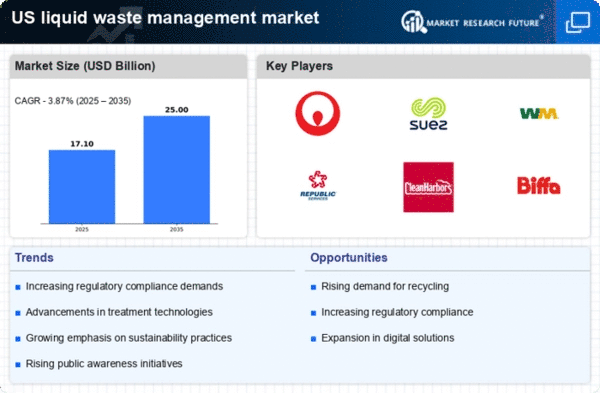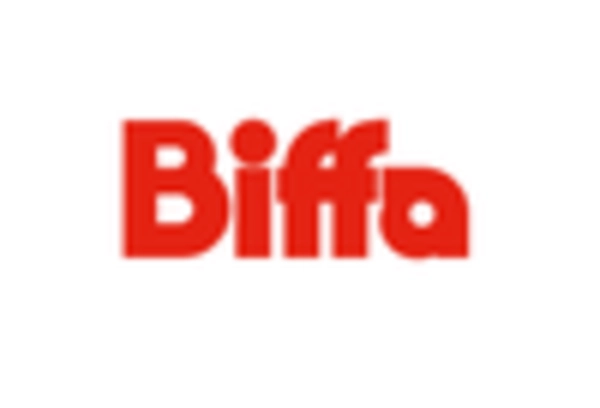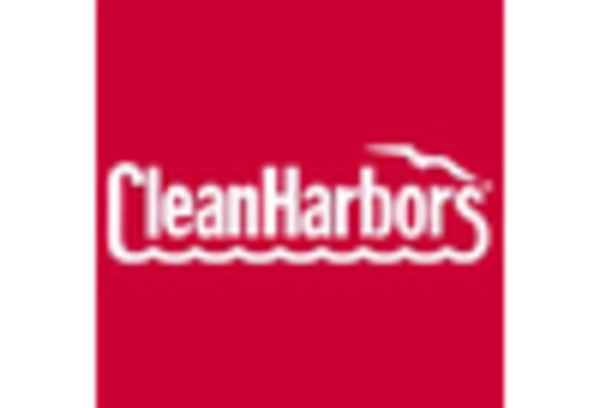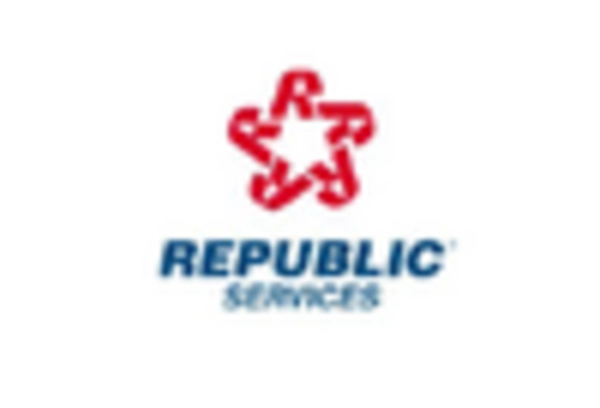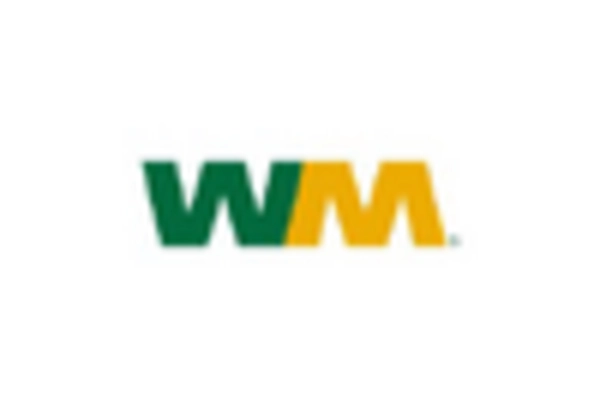The liquid waste-management market in the US is characterized by a competitive landscape that is increasingly shaped by sustainability initiatives, technological advancements, and regulatory pressures. Key players such as Waste Management (US), Republic Services (US), and Clean Harbors (US) are actively pursuing strategies that emphasize innovation and operational efficiency. Waste Management (US) has positioned itself as a leader in recycling and waste diversion, focusing on enhancing its service offerings through digital transformation and customer engagement. Meanwhile, Republic Services (US) is concentrating on expanding its footprint through strategic acquisitions and partnerships, thereby enhancing its market share and operational capabilities. Collectively, these strategies indicate a trend towards a more integrated and sustainable approach to waste management, which is likely to redefine competitive dynamics in the sector.In terms of business tactics, companies are increasingly localizing their operations to better serve regional markets and optimize supply chains. The market appears moderately fragmented, with several players vying for dominance while also collaborating on sustainability initiatives. This competitive structure allows for a diverse range of services and innovations, as companies leverage their strengths to address the unique challenges of liquid waste management.
In October Clean Harbors (US) announced a significant investment in advanced waste treatment technologies aimed at enhancing its operational efficiency and reducing environmental impact. This move is strategically important as it aligns with the growing demand for sustainable waste management solutions and positions Clean Harbors (US) as a frontrunner in adopting cutting-edge technologies. The investment is expected to improve processing capabilities and reduce costs, thereby enhancing competitiveness in a rapidly evolving market.
In September Republic Services (US) expanded its partnership with a leading technology firm to integrate AI-driven analytics into its waste collection operations. This strategic action is indicative of a broader trend towards digitalization within the industry, as companies seek to optimize routes and improve service delivery. By leveraging AI, Republic Services (US) aims to enhance operational efficiency and customer satisfaction, which could provide a competitive edge in a market that increasingly values technological innovation.
In August Waste Management (US) launched a new initiative focused on increasing recycling rates through community engagement programs. This initiative underscores the company's commitment to sustainability and reflects a growing trend among competitors to prioritize environmental stewardship. By fostering community involvement, Waste Management (US) not only enhances its brand reputation but also contributes to a circular economy, which is becoming a critical factor in consumer decision-making.
As of November the competitive trends in the liquid waste-management market are heavily influenced by digitalization, sustainability, and the integration of AI technologies. Strategic alliances are increasingly shaping the landscape, allowing companies to pool resources and expertise to tackle complex waste management challenges. Looking ahead, it appears that competitive differentiation will evolve from traditional price-based competition to a focus on innovation, technology adoption, and supply chain reliability. This shift may redefine how companies position themselves in the market, emphasizing the importance of sustainable practices and advanced technological solutions.


